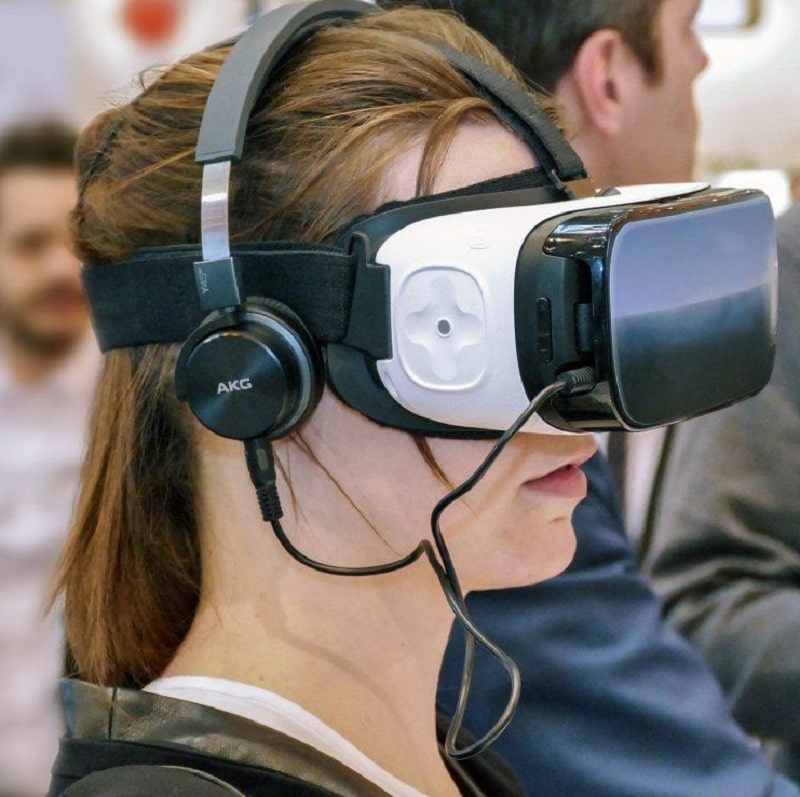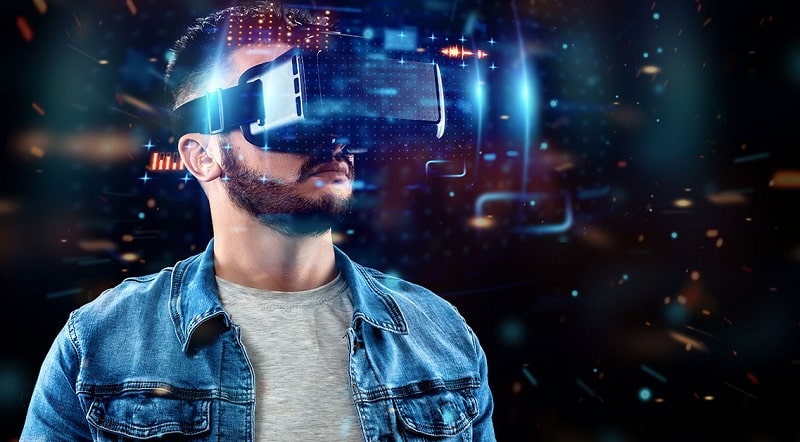The introduction of VR in gambling

Virtual and augmented reality are becoming important elements in the gambling market. They contribute to increased immersion in gameplay and the acquisition of other emotional connotations. Trends in the development of roulette, slots, casinos and other gambling entertainment with the addition of virtual reality are now very relevant. Players have not yet shown significant demand for this segment, but some experts believe that this direction is one of the most promising in the segment in the coming years.
Benefits of VR in gambling
Apart from the best immersive gaming atmosphere, software developers also offer moving real people into a virtual environment. The chic three-dimensional graphics are complemented by important characters: dealers or other players. The differences between multiplayer poker games using such technology become almost imperceptible in real and virtual variations.
With the help of controllers, the player easily tosses chips or cards, clicks buttons on slot machines, gestures and expresses various emotions. Improvements in technology mean that the range of actions within the virtual space is constantly expanding.
Gambling and virtual reality are among the few areas for which the pandemic has proven to be a fruitful period with a surge in demand. In previous years, no one had dared predict such a rapid rise in quotations. Given the number of unexpected situations over the past two years, one should be very cautious about specific numbers. Only one thing is clear: the trend of steadily increasing interest in both topics tends to continue.

Challenges of introducing VR technology to online casinos
The problems of making virtual reality available to a wide range of users are related to the high cost of the headsets and their constant upgrading. No sooner has a person purchased one model of glasses (their cost can exceed $1000), than the developers have already released a new variation of the device. Some companies regularly offer new products, while others abruptly stop showing developments in this area and withdraw from the market.
There are also difficulties with the number of software versions required: there are many types of popular headsets. The onus is also on the user to purchase a VR-compatible computer. Mass distribution of the headset is only possible if the conditions are met:
- The cost of the device is comparable to a cheap smartphone;
- no wires;
- the ability to work for a long time without recharging (at least a few hours);
- high quality graphics and sound display.
No one has yet managed to combine these requirements, and the hard work continues in order to achieve the ideal results.
An example of a successful online casino launch from SlotsMillion
Back in 2015, the SlotsMillion VR virtual casino was launched. The user walks around a spacious room with slot machines and chooses the slot they want. There are as many as 40 slots to choose from, and the environment is visible through Oculus Rift glasses. According to the creators of the project, the main problem was the small number of people who have VR equipment. It was decided to adapt the VR format for desktop computers and mobile devices.
Also an unpleasant surprise was the repeated tightening of legislation by the regulators. Mandatory requirements had to be met: setting clocks in games so that one does not lose the sense of time, putting a limit on tournaments between users. Coming to a common denominator in agreeing nuances with the regulators is more difficult, because they themselves have not fully formulated their rules. Experience in regulating such a market is only emerging.
Choosing providers and the best time to launch a VR casino
CASEXE, Microgaming and NetEnt providers are the most active in developing software for online casinos. When launching your casino, games should be taken from proven brands.
The organisational strategy and tactics when setting up a virtual project are very similar to launching a website or mobile offering. One only needs to carefully analyse the demand, and there are some issues with it. But the pandemic period forms a clear demand for an opportunity to have fun and interesting time in the virtual space. We just have to wait for the release of a headset with a nice combination of cost and performance. It is highly likely to be someone from the world’s IT giants, capable of making a massive investment, to dramatically capture the market with a novelty.
